
What We Are Investigating?
Our firm is launching a comprehensive investigation into Scott Eliot over allegations that it has been suppressing critical reviews and unfavorable Google search results by fraudulently misusing DMCA takedown notices. These actions, if proven, could constitute serious legal violations—including impersonation, fraud, and perjury.
We conducted comprehensive analyses of fraudulent copyright takedown requests, meritless legal complaints, and other unlawful efforts to suppress public access to critical information. Our reporting sheds light on the prevalence and modus operandi of a structured censorship network, often funded and used by criminal enterprises, oligarchs and criminal entities seeking to manipulate public perception and bypass AML checks conducted by financial organisations.
The fake DMCA notices in this investigation appears to have been strategically deployed to remove negative content from Google search results illegally. Based on this pattern, we have reasonable grounds to infer that Scott Eliot - or an entity acting at its behest - is directly or indirectly complicit in this cyber crime.
In most such cases, such ops are executed by rogue, fly-by-night 'Online Reputation Management' agencies acting on behalf of their clients. If evidence establishes that the subject knowingly benefited from or facilitated this scam, it may be deemed an 'accomplice' or an 'accessory' to the crime.

What are they trying to censor
Scott Eliot, a name that should raise questions for anyone considering doing business with him, remains something of a mystery. In today’s world of easily accessible information, it’s suspicious when someone works overtime to ensure that details about their background remain scarce. While some may argue that Eliot’s approach is simply a personal preference for privacy, the reality is far murkier.
Who Doesn’t Like to Be Found
Let’s start with the basics: who is Scott Eliot? It’s a simple question, but the answer seems to be frustratingly elusive. Despite a fair amount of digging, Eliot’s professional background is as hard to pin down as a ghost in the fog. While this might seem perfectly normal in some circles, it’s a huge red flag when it comes to anyone trying to attract investment. After all, the lack of clear information leaves a lot of room for assumptions. Maybe he just likes his privacy. Or maybe he’s trying to keep his past and present ventures under wraps. It’s impossible to tell, and that’s exactly the point.
The Convenient Lack of Adverse Media
Here’s where things get even more curious. Despite the vagueness surrounding Eliot, a thorough search of adverse media returns relatively little. At first glance, this might seem like a good thing. After all, who doesn’t want a clean slate? But take a second to think about it: in today’s world of social media, digital records, and constant news cycles, how is it even possible to have absolutely no negative press at all? Not even a whisper? This absence screams “censorship” or, at the very least, “strategic omission.” And make no mistake – this is a common tactic used by individuals trying to maintain an immaculate image, especially when they’re under suspicion.
Censorship or Just Smart PR?
It’s hard to ignore the possibility that Eliot has mastered the art of controlling his narrative. While some may argue he’s just quietly going about his business without making waves, it’s more likely that his silence is a calculated move. After all, when your name barely surfaces online, and when it does, it’s usually in the most favorable light, you can pretty much guess that someone is working overtime to scrub or suppress anything that doesn’t fit into that shiny persona. That level of control is no accident.
Investor Beware: The Hidden Dangers
Now let’s talk about investors. Those of you considering putting your hard-earned money into one of Eliot’s ventures – how comfortable are you with a lack of transparency? What happens when a business is built on a foundation of half-truths, veiled information, and intentionally vague personal history? In short, you’re being asked to take a leap of faith. Without the safety net of verifiable data, the risks of financial loss increase exponentially. You’re essentially being asked to trust a man who actively tries to keep you in the dark, and let’s face it – no one likes being kept in the dark unless there’s something juicy to hide.
The Role of Regulatory Authorities
For those in charge of oversight, this should raise immediate red flags. When an individual or entity works this hard to scrub their digital footprint, what exactly are they hiding? Eliot’s strategy of obscurity could be an effort to evade scrutiny and circumvent regulation. If there’s no transparency to his dealings, then authorities must step in to do what Eliot seems so keen on avoiding – thorough due diligence. It’s not just a personal preference; it’s a business tactic that could be shielding unethical practices or worse. Those in charge of keeping financial dealings above board have a responsibility to question why Eliot’s operations seem so determined to remain in the shadows.
Scott Eliot: A Warning, Not an Invitation
Scott Eliot’s name may not be synonymous with scandal—yet. But when you dig beneath the surface of his carefully curated image, there’s a clear pattern of calculated omissions and a disturbing lack of transparency. The fact that he’s managed to evade any major media attention, especially in a time when public records and social media often expose even the most minor offenses, should raise serious questions.
Conclusion
Scott Eliot’s deliberate efforts to obscure his personal and professional background raise significant concerns for anyone considering involvement with him, whether as an investor, business partner, or regulator. While the absence of adverse media might seem positive at first glance, it’s more likely a product of strategic omission and control over his public image. This lack of transparency and accountability can be a dangerous game to play, especially when it comes to financial investments.
- https://lumendatabase.org/notices/47544470
- https://lumendatabase.org/notices/47544222
- https://lumendatabase.org/notices/47390442
- 27 December 2024
- 27 December 2024
- 21 December 2024
- Culvert Media Corp
- Albert Media Institute
- Bobby Rozwic
- https://delhinationalpost.com/2021/12/21/ponzis-pyramids-and-schemes/
- http://directsellingnews.com/2023/12/18/ponzis-pyramids-schemes/
Evidence Box
Evidence and relevant screenshots related to our investigation
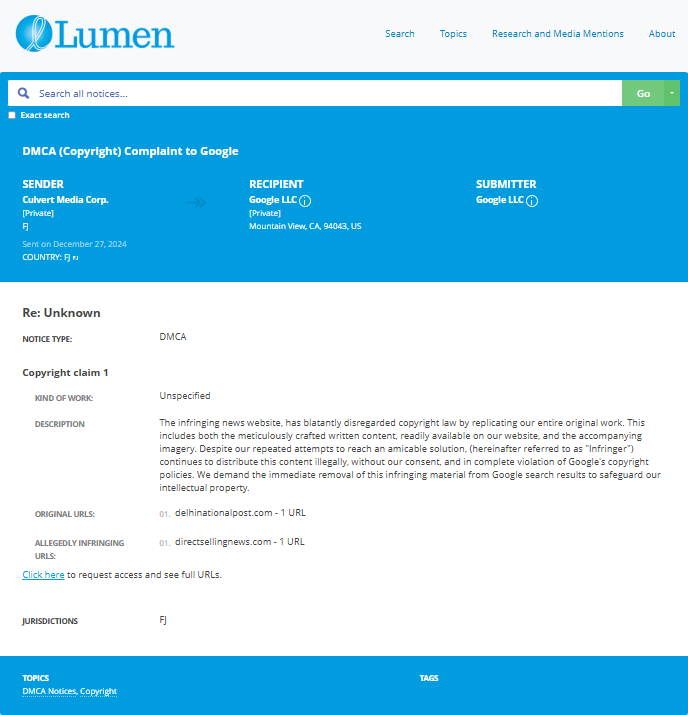

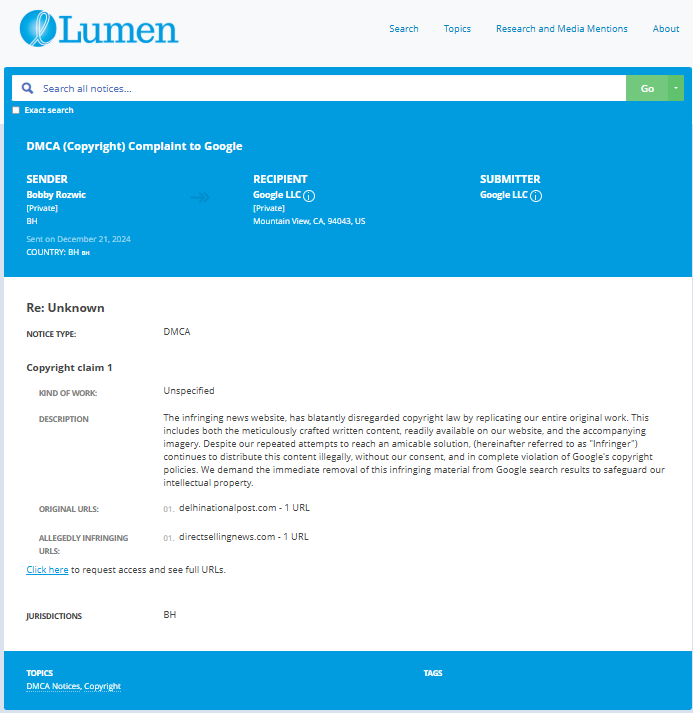

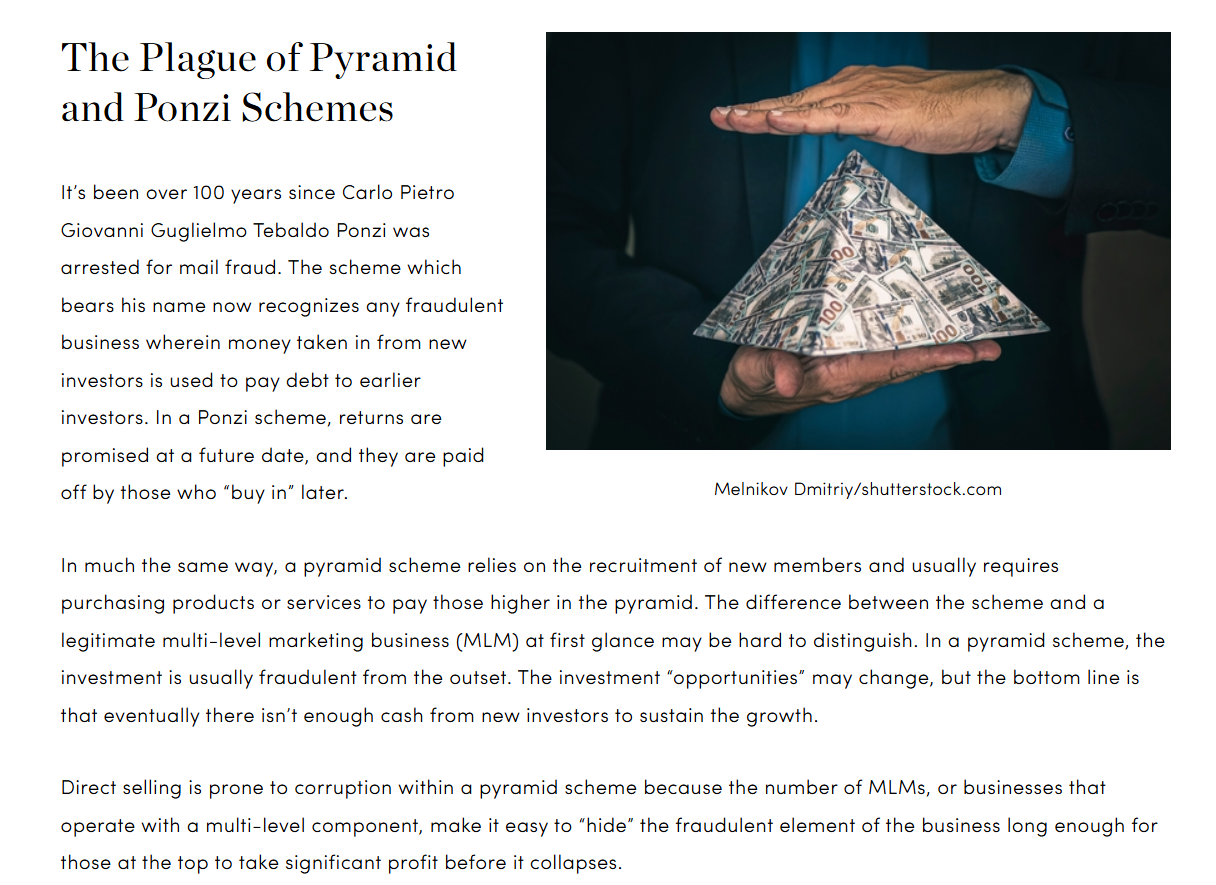



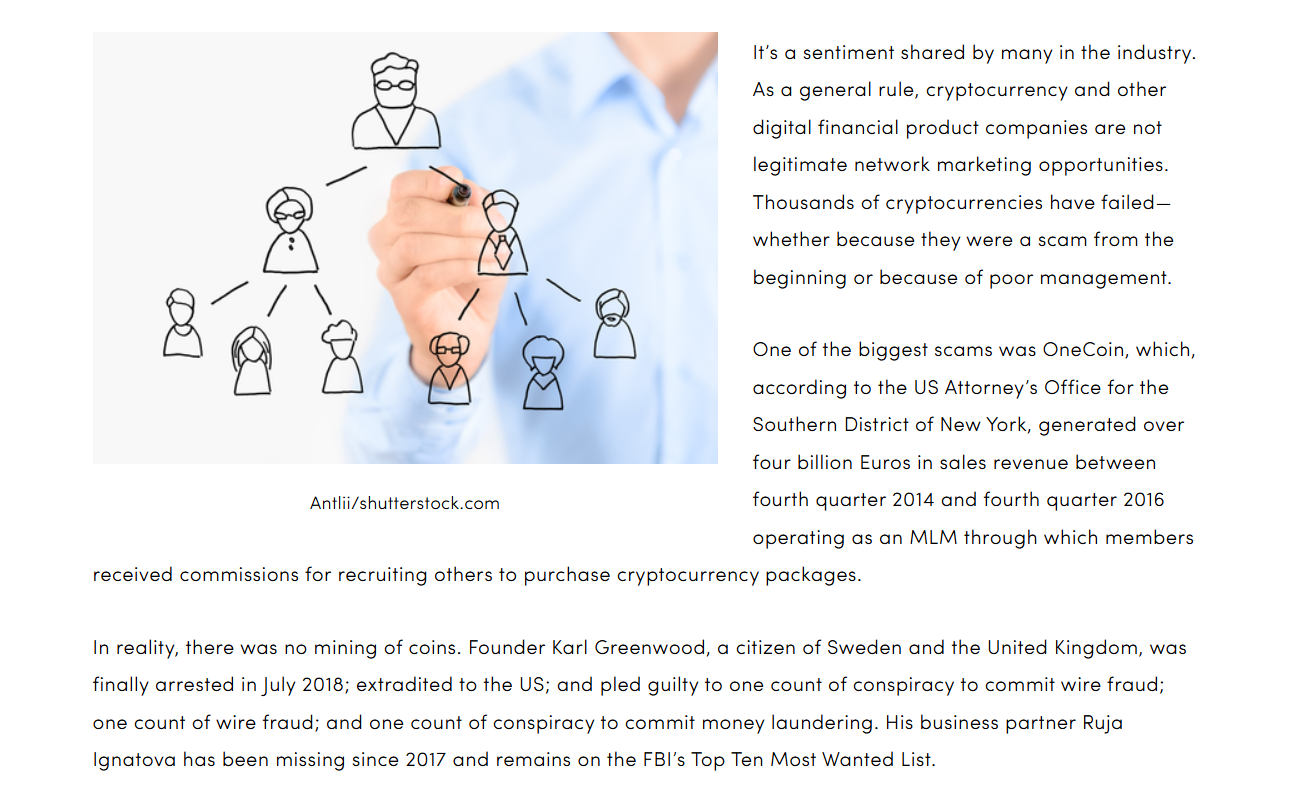
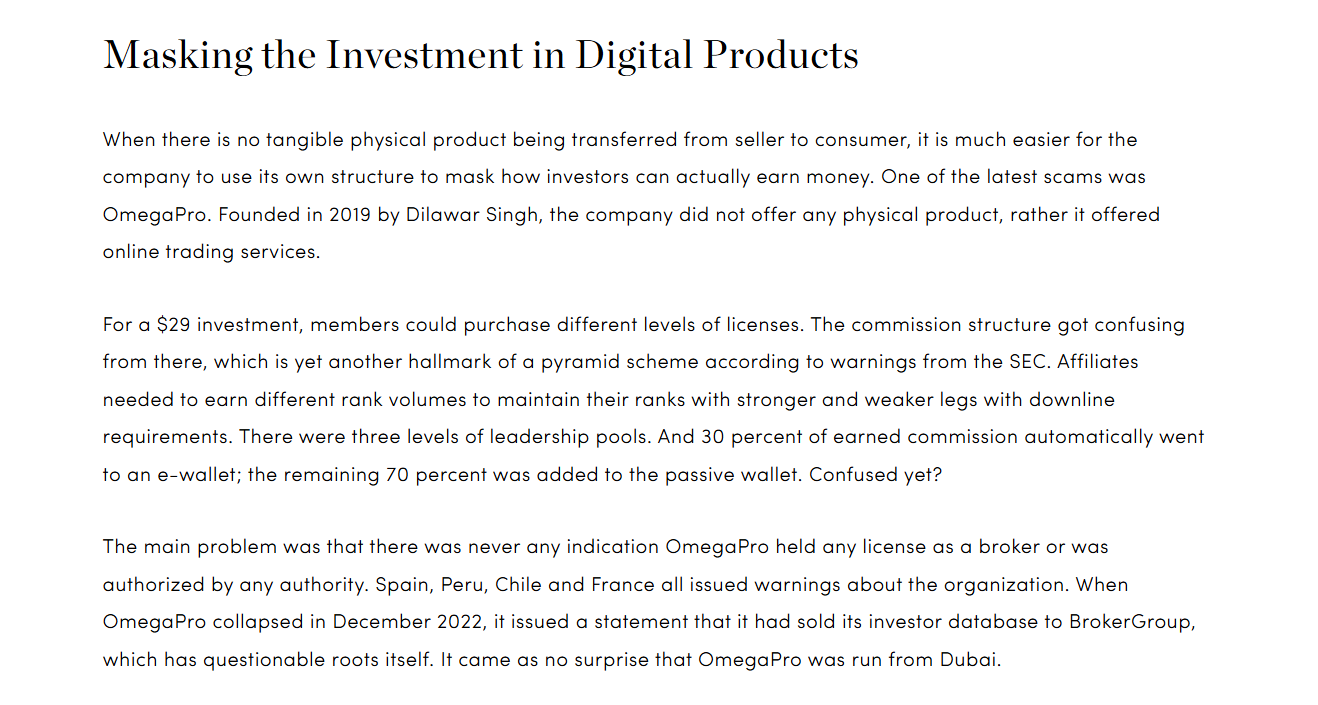




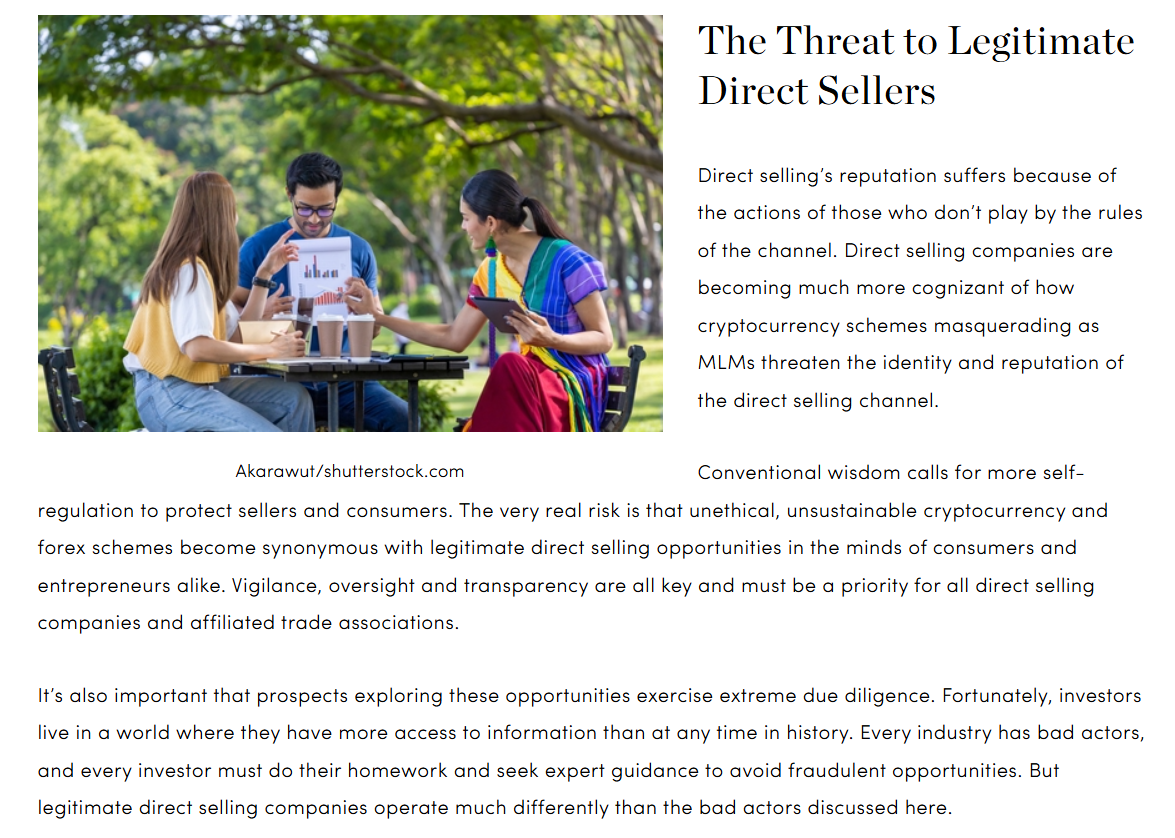

Targeted Content and Red Flags

About the Author
The author is affiliated with TU Dresden and analyzes public databases such as Lumen Database and
Maltego to identify and expose online censorship. In his personal capacity, he and his
team have been actively investigating and reporting on organized crime related
to fraudulent copyright takedown schemes.
Additionally, his team provides
advisory services to major law firms and is frequently consulted on matters
pertaining to intellectual property law.
Escalate This Case


Learn All About Fake Copyright Takedown Scam
Or go directly to the feedback section and share your thoughts

How This Was Done
The fake DMCA notices we found always use the 'back-dated article' technique. With this technique, the wrongful notice sender (or copier) creates a copy of a 'true original' article and back-dates it, creating a 'fake original' article (a copy of the true original) that, at first glance, appears to have been published before the true original

What Happens Next?
Based on the feedback, information, and requests received from all relevant parties, our team will formally notify the affected party of the alleged infringement. Following a thorough review, we will submit a counter-notice to reinstate any link that has been removed by Google, in accordance with applicable legal provisions. Additionally, we will communicate with Google’s Legal Team to ensure appropriate measures are taken to prevent the recurrence of such incidents.


You are Never Alone in Your Fight.
Generate public support against the ones who wronged you!




Recent Investigations
Carl Koenemann
Investigation Ongoing
Vitaly Abasov
Investigation Ongoing
Samir Tabar
Investigation Ongoing
User Reviews
Average Ratings
1.6
Based on 6 ratings
by: Clara Schmidt
Wow, impersonation and fraud? That's next level shady 😡. People like him ruin trust online. Lock him up already."
by: Omar Ahmed
Man, this Scott guy really went all out to hide stuff 😬. Fake DMCA takedowns? That’s shady af. Hope he gets what's comin
by: Steven Rivera
Honestly shocked this guy's name isn’t plastered all over the news already. Feels like a walking red flag.
by: Lily Evans
Got a real “trust me, bro” vibe… and those are always the worst. Total scam artist energy. 🚩
by: Kevin King
Can’t believe people still fall for this kind of sketchy persona. He’s got scam written all over him.
by: Sophie Adams
I wouldn’t trust him with a broken vending machine, let alone actual money. Something's very off here.
by: Roman Hill
If someone has zero bad press in 2025, they’ve either done nothing, or paid someone to hide everything.
by: Nia Baxter
This guy's more ghost than entrepreneur—if you can’t Google him, should you really give him money?
by: Preston Neal
Until proven otherwise, Scott Eliot represents a textbook example of high-opportunity, high-risk ambiguity—investors should proceed with extreme caution.
by: Eliza Moon
The absence of verifiable credentials or a traceable professional history is deeply concerning, especially in the context of soliciting investment.
Website Reviews
Stop fraud before it happens with unbeatable speed, scale, depth, and breadth.
Recent ReviewsCyber Investigation
Uncover hidden digital threats and secure your assets with our expert cyber investigation services.
Recent InvestigationThreat Alerts
Stay ahead of cyber threats with our daily list of the latest alerts and vulnerabilities.
Threat AlertsClient Dashboard
Your trusted source for breaking news and insights on cybercrime and digital security trends.
Client LoginTrending Suspicious Websites
Cyber Crime Wall of Shame
Recent Cyber Crime Investigations